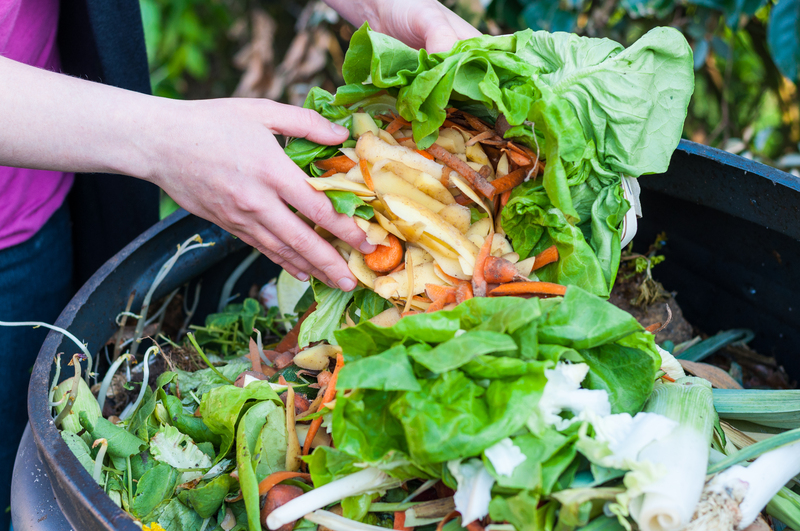Avoid Extra Fees When Getting Rid of Bulky Waste Items
Getting rid of bulky waste items like old furniture, appliances, or mattresses often comes with hidden expenses. If you don't plan in advance, you might face unexpected service fees or even fines. Fortunately, with a little research and some savvy strategies, it's entirely possible to avoid extra charges when disposing of your large household items. This comprehensive guide will walk you through effective, eco-friendly, and cost-saving ways to dispose of bulky waste items while avoiding additional fees.

Understanding Bulky Waste and Its Disposal Challenges
Bulky waste refers to large household items that can't fit in regular curbside trash bins. Typical examples include:
- Sofas, armchairs, and other large furniture
- Mattresses and box springs
- Refrigerators, stoves, and washing machines
- Televisions and other large electronics
- Carpets and rugs
Because bulky waste isn't collected during regular garbage pick-up, improper disposal may lead to unwanted expenses or even legal trouble. Understanding your options is essential for saving both time and money.
Why Extra Fees Occur When Disposing of Bulky Waste
Extra disposal charges primarily stem from:
- Over-sized item collection fees
- Improper curbside disposal, attracting penalties or fines
- Landfill tipping fees based on item weight or size
- Lack of preparation (e.g., not disconnecting appliances or removing doors from fridges)
Many municipal waste programs charge for bulky item removal services. Some private haulers and junk removal services, while convenient, come with premium rates. Avoiding these costs begins with understanding all available removal options and requirements in your area.
Smart Strategies to Avoid Extra Fees With Bulky Waste Removal
1. Check Your Local Government's Bulky Item Pickup Policies
Start by visiting your city or county waste management website. Many municipalities offer:
- Free bulk waste pickup days: Some areas schedule annual or biannual events where residents can place large items by the curb for free collection.
- Low-cost or limited free pickups: Certain programs allow a set number of free bulky item collections every year, with additional pickups available for a fee.
- Drop-off services: Local transfer stations may accept bulky waste at little or no cost, especially for residents.
Pro tip: Schedule bulk pickups in advance and follow your city's guidelines for preparation and placement to avoid extra fees or having items left behind.
2. Prepare Bulky Waste Properly
Many extra charges occur because items aren't prepared according to collection guidelines. To avoid extra fees, always:
- Remove doors from appliances (especially fridges and freezers) for safety reasons.
- Disassemble furniture (like beds and large shelves) to reduce size and weight.
- Drain fluids from appliances (e.g., air conditioners or lawnmowers).
- Bundle items neatly and avoid exceeding allowed size or weight limits.
- Label electronics or hazardous items as required.
Failure to comply could mean your stuff isn't collected and you may be charged for a missed appointment.
3. Take Advantage of Special Collection Events
Many communities host periodic large item collection events, allowing residents to dispose of items without extra costs. Watch for city announcements, newsletters, or online updates for upcoming opportunities. These events are particularly valuable for disposing of multiple items at once, saving you on multiple collection fees.
4. Donate or Sell Usable Bulky Items
If your item is still in good condition, consider donating or selling it rather than paying for its disposal. Options include:
- Local charities: Organizations like the Salvation Army or Habitat for Humanity may pick up large items for free.
- Online marketplaces: Post your item on platforms like Facebook Marketplace, Craigslist, or Freecycle.
- Community groups: List your items on neighborhood apps like Nextdoor.
Not only does this save on disposal charges, but it's an environmentally responsible choice too.
5. Recycle Bulky Items Whenever Possible
Many large items--such as metal bed frames, appliances, or electronics--contain valuable recyclable materials. Local recycling centers often accept these items for little or no fee. Some resources include:
- E-waste recycling programs: For TVs, computers, and other electronics.
- Appliance take-back options: Some retailers offer free removal and recycling with the purchase of a new appliance.
- Scrap metal yards: Earn a small amount for metal objects, while avoiding landfill fees.
Always contact facilities first to confirm acceptance policies and any potential fees.
Bulky Waste Fee Comparison: DIY vs. Professional Services
If you can't leverage municipal services, you have two main options:
- Do-It-Yourself Disposal: Rent a truck or borrow a friend's vehicle to haul the items to an approved landfill or recycling center. This typically only incurs landfill fees, which are often less than scheduled collection or junk removal services. Plus, you control the entire process, following all guidelines to avoid additional fees for bulky item disposal.
- Professional Junk Removal: Hiring private companies is convenient, as they haul and recycle (or donate) your items for you. However, these services usually charge based on the volume of items, weight, and sometimes labor to move them out of your house.
Tip: If you do hire a company, compare rates carefully, check for included labor or distance fees, and look for companies that offer flat rates or discounts for scheduled pickups during community bulk days.
Additionals Tips and Common Mistakes That Lead to Extra Fees
Watch Out for Hidden Costs
- Description fees: Some collectors charge if your item isn't listed or described accurately during scheduling.
- Stair or handling fees: Bulky items located inside or above the ground floor can attract extra labor charges if not placed at curbside.
- Hazardous item surcharges: Appliances with refrigerants, electronics, or items containing lead, mercury, etc., can incur additional fees or require special handling.
Avoid Illegal Dumping at All Costs
Leaving bulky items on public property, alleys, or vacant lots without proper authorization can result in fines far more expensive than standard disposal fees. Such illegal dumping not only impacts the environment but can also affect property values in the neighborhood.
Understand Size and Limits
Municipal collection services may impose strict size, weight, and quantity limits for each pick-up. When in doubt, contact your local waste management provider to clarify rules, or split your items between several scheduled pickups to avoid over-limit charges.
Combine With Neighbors
If you and your neighbors have several bulky waste items to discard, consider arranging a coordinated pickup or renting a dumpster together. Costs are shared and most companies offer volume discounts. This approach often results in savings and prevents individual extra fees for additional services or pickups.
Eco-Friendly Bulky Waste Disposal: Save Money and the Environment
Avoiding extra fees when disposing of bulky waste items isn't just about cost-saving--it's also about sustainability. By recycling and repurposing, you divert large objects from local landfills, conserve resources, and help build a greener community.
- Repurpose before you refuse: Old furniture or building materials can be turned into DIY projects--benches, planters, or storage units.
- Donate for reuse: If your item could be useful elsewhere, many schools, shelters, or churches welcome gently used donations.
- Use specialty recyclers: Carpets, mattresses, and electronics often have dedicated recycling channels to ensure valuable materials are recovered and not wasted.
Local Search Resources and Easy Access
Today, many communities have online directories or smartphone apps letting you quickly search for no-cost bulky item pickup, recycling drop-off centers, or donation programs near you. Use search variations like:
- "Bulky waste pickup near me"
- "Large item disposal free"
- "Recycle appliances [city]"
By using local resources and participating in community events, it's easier to stay up-to-date with new opportunities to save money on large-item disposal.
Summary: Key Steps to Avoid Extra Fees With Bulky Waste Items
- Check local programs for free or low-cost pickup or drop-off options
- Follow preparation guidelines to ensure collection without extra charges
- Donate or sell items whenever possible for free removal
- Recycle large appliances and electronics through specialty programs
- Share costs with neighbors or during community events to save
- Avoid illegal dumping to eliminate risk of steep fines

Frequently Asked Questions: Bulky Waste Fees and Free Removal Options
Can I put large furniture on the curb for free?
This depends on your local waste management policies. Some cities allow a set number of free curbside bulk pickups per year, while others require scheduling and a service fee. Always check before placing items out to avoid fines or ignored pickups.
Do charity organizations pick up big items for free?
Many charities offer free pickup of usable furniture or appliances, especially if you call ahead or schedule online. Items must be in good condition, clean, and structurally sound.
How can I recycle a mattress or appliance for free?
Some mattress retailers or appliance stores provide haul-away services with the purchase of new items. Local recycling centers or annual "amnesty" events may offer free disposal for residents as well. Look up "mattress recycling" or "appliance recycling near me" for current deals.
What if my bulky item is broken or not usable?
If your only option is the landfill, maximize your savings by preparing items per guidelines, scheduling during bulk events, and researching available discounts. Scrap metal yards will often accept non-working appliances at no cost.
Conclusion: Dispose of Bulky Waste Without Extra Charges
With rising landfill and collection fees, saving money while getting rid of bulky waste items is a priority for homeowners and renters alike. By being proactive--following "avoid extra fees bulky waste" best practices, leveraging city programs, donating or recycling when possible, and always following preparation guidelines--you can keep your decluttering process eco-friendly and affordable.
Don't let large, unwanted items become a costly headache. Use these strategies to clear out your bulky waste efficiently, avoid hidden fees, and do your part to keep your community clean and green.